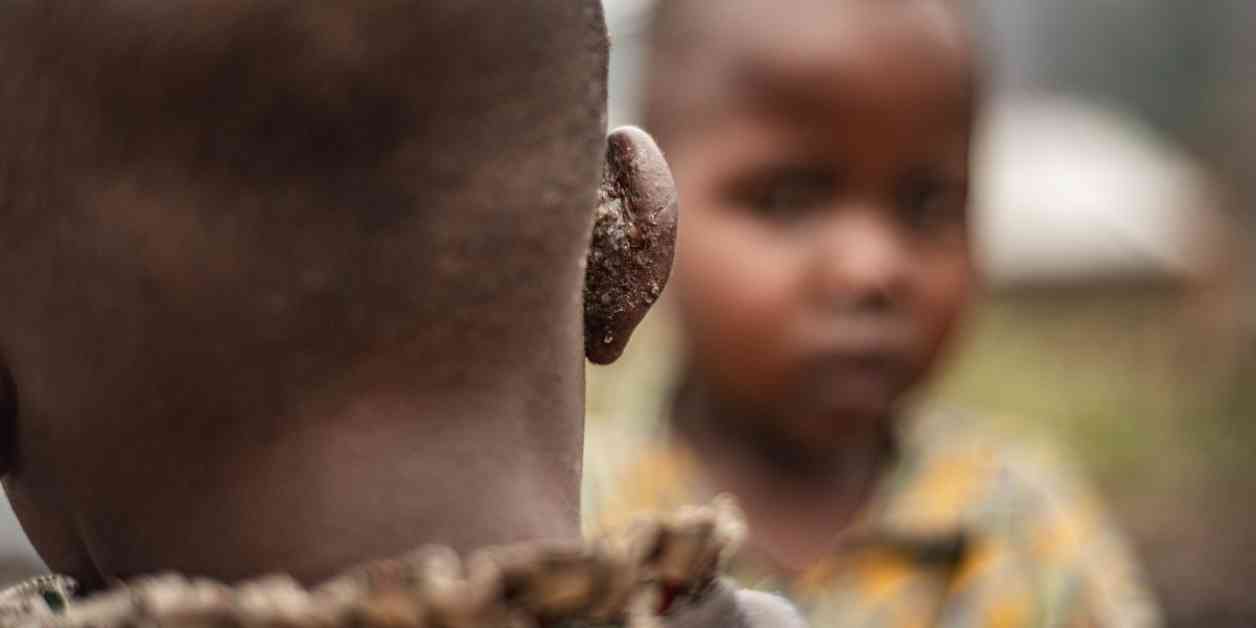The World Health Organization has recently declared the increasing spread of mpox in Africa a global health emergency, citing concerns that the virus could potentially spill across international borders. With more than 14,000 cases and 524 deaths in Africa this year alone, the situation is dire and requires immediate attention and action.
Mpox, also known as monkeypox, was first identified in 1958 when outbreaks of a “pox-like” disease were observed in monkeys. Most human cases were previously seen in individuals in central and West Africa who had close contact with infected animals. However, in 2022, the virus was confirmed to spread via sex for the first time, leading to outbreaks in over 70 countries worldwide.
Belonging to the same family of viruses as smallpox, mpox causes milder symptoms such as fever, chills, and body aches. In more severe cases, individuals may develop lesions on the face, hands, chest, and genitals. The recent emergence of a new form of the virus in a Congolese mining town has raised concerns among scientists due to its potential for increased transmission and mortality rates.
The number of mpox cases in Africa has surged significantly in recent times, with the Africa CDC reporting detections in at least 13 African countries. Compared to the same period last year, cases have risen by 160% and deaths by 19%. The new form of mpox in Congo presents with milder symptoms and lesions on the genitals, making it harder to detect and potentially leading to unknowing transmission.
Recent reports have revealed the spread of mpox to four East African countries: Burundi, Kenya, Rwanda, and Uganda, all linked to the epidemic in Congo. Health authorities in the Ivory Coast and South Africa have also reported outbreaks of a less dangerous version of mpox that spread globally in 2022, infecting nearly 100,000 individuals.
The threat of mpox reaching other parts of the world is a significant concern, as evidenced by cases detected in four East African countries and a recent identification in Sweden. While the risk to the general public is considered low, sporadic imported cases are expected to continue. The transient population in the region where the new form of mpox was first identified poses challenges in containing the virus’s spread.
WHO’s emergency declaration aims to mobilize donor agencies and countries into action to address the escalating crisis. However, past responses to similar declarations have been mixed, with challenges in delivering essential resources like diagnostic tests, medicines, and vaccines to affected regions. The current outbreak in Africa differs from the 2022 epidemic, with children under 15 accounting for a significant portion of cases and deaths in Congo.
Save the Children’s Congo director expressed concern about the spread of mpox in crowded refugee camps in the east, highlighting the strain on the country’s health system already dealing with malnutrition, measles, and cholera. The disproportionate impact on children in Congo remains unclear, with potential factors including susceptibility to the virus and social conditions like overcrowding and exposure to infected parents.
Containing and stopping the spread of mpox in Africa will require a multi-faceted approach, including immunization efforts targeting high-risk populations. Vaccinating individuals against smallpox, a related virus, could be beneficial in preventing mpox infections. However, the availability of vaccines and treatments in Africa remains limited, with Congolese authorities requesting 4 million doses for young children but facing delays in receiving them.
In conclusion, the global health emergency posed by the spread of mpox in Africa requires immediate and coordinated efforts to contain the virus and prevent further escalation. With increasing cases and deaths, particularly among children, addressing the root causes of the outbreak and providing essential resources are crucial steps in combating this public health crisis. Vigilance, collaboration, and swift action are essential in preventing the spread of mpox beyond Africa’s borders and safeguarding global health security.






















